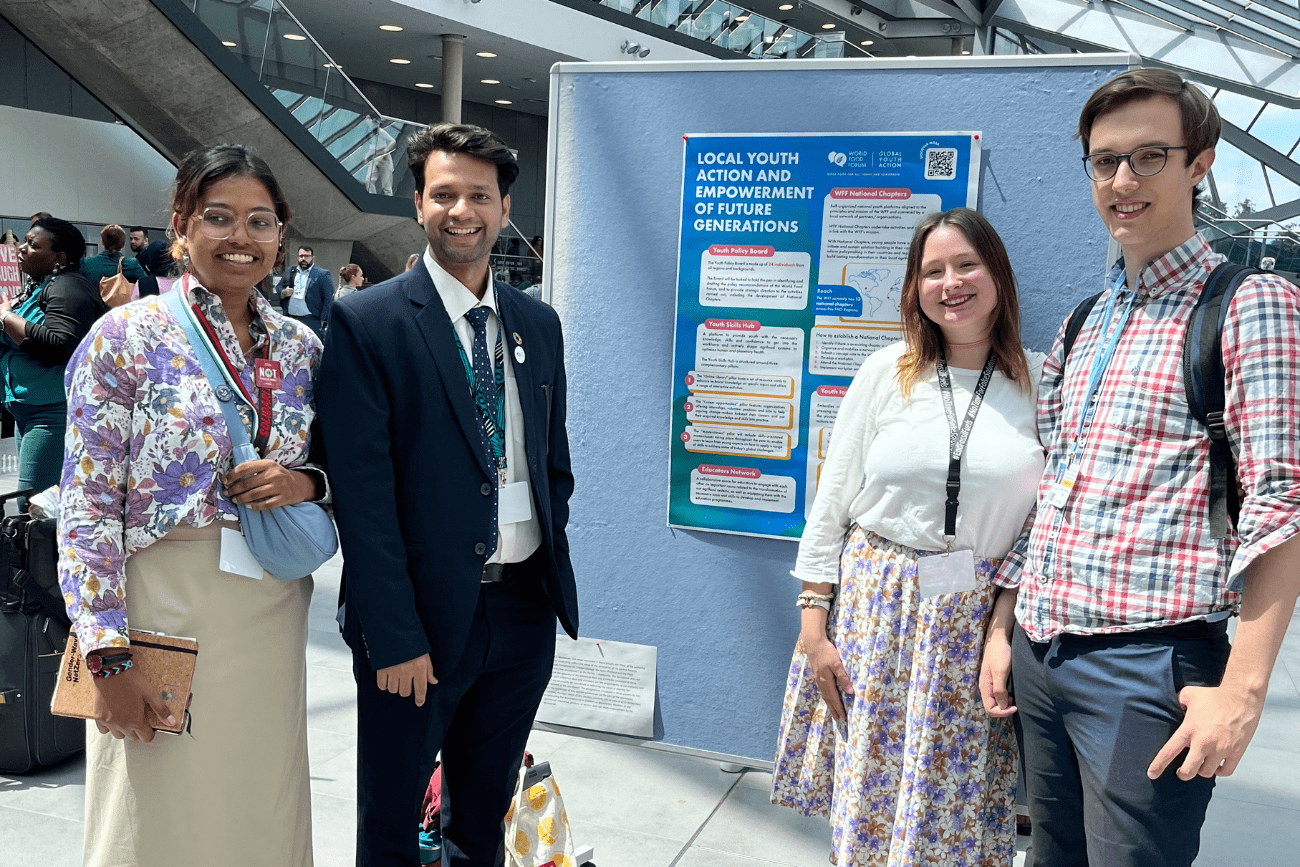From Bonn to Baku: A recap of the 60th session of the Subsidiary Bodies

The World Food Forum is pleased to share an insightful recap from Vikrant Srivastava, a dedicated Youth Policy Board (YPB) member, who attended the 60th session of the Subsidiary Bodies (SB60) in Bonn, Germany. Here, Vikrant shares his firsthand experiences and reflections on the event’s key discussions.
Vikrant Srivastava:
The 60th session of SB60 of the United Nations Framework Convention on Climate Change (UNFCCC) concluded in Bonn, Germany, setting the stage for the upcoming COP29 in Baku, Azerbaijan. Here is a detailed analysis of the key outcomes and discussions from SB60, encompassing climate finance, loss and damage, adaptation, mitigation, just transition, carbon markets, food and agriculture, transparency and technology transfer.
At SB60, climate finance was a central focus, with developing nations emphasizing the need for substantial financial support from developed countries. Despite commitments under the Paris Agreement, the $100 billion annual target for 2020 remains unmet. Developing countries, led by various groups, called for trillions in financial support to meet their climate goals, but developed nations were hesitant to commit to specific targets instead promoting private sector involvement and multilateral development bank reforms. The expansion of the donor base, to include wealthy developing nations, remains a much-debated issue.
Discussions about loss and damage, which address the permanent effects of climate change, remained heated. The establishment of a new fund at COP28 was a key step, but disagreements persist over a separate financial window within the New Collective Quantified Goal (NCQG). Developed countries argue that including loss and damage under NCQG could dilute existing resources.
Adaptation negotiations were closely linked to climate finance, focusing on the global goal on adaptation. The UAE-Belém work programme on adaptation indicators made slow progress, with disputes over modalities and financial recognition. A compromise text was forwarded to COP29.
The Mitigation Work Programme encountered significant challenges. Disagreements over the programme's alignment with the global stocktake outcomes led to an impasse. Developed countries emphasized phasing out fossil fuels, while some developing nations resisted, citing undue burdens.
The Just Transition Work Programme also faced difficulties, with developed countries focusing on job transitions, while developing nations emphasized social justice and environmental sustainability. A procedural agreement was reached, with discussions to continue at COP29.
Negotiations on Article 6, concerning international carbon markets saw progress, but key issues remain unresolved. The exclusion of "emissions avoidance" from generating credits under Article 6.2 and 6.4 was a notable outcome, set for reassessment in 2028. Efforts to enhance transparency were also discussed.
The Sharm el-Sheikh Joint Work on Implementation of Climate Action on Agriculture and Food Security made significant strides, with an agreed work plan. This includes an annual synthesis report, an online portal for COP29 and workshops on systemic approaches to climate action in agriculture.
Transparency was a critical theme, with discussions on improving reporting mechanisms under the Enhanced Transparency Framework. Countries are expected to submit their first Biennial Transparency Reports by the end of 2024.
Technology transfer was highlighted as crucial for achieving climate goals. Developed nations were urged to support capacity-building initiatives and create conducive environments for technology adoption. Discussions also emphasized the establishment of innovation hubs.
As the focus shifts to COP29 in Baku, the challenge will be balancing energy interests with global climate action. Finance remains a pivotal issue, with geopolitical complexities and ongoing conflicts adding layers of challenge to the negotiations.
In conclusion, SB60 underscored ongoing divisions within the UNFCCC process, with finance, loss and damage, and adaptation at the forefront of discussions. As the world prepares for COP29, the outcomes of these negotiations will shape the future of global climate action and the success of efforts to limit warming to 1.5°C. The inclusion of food and agriculture highlights the need for comprehensive, inclusive strategies in climate action.




